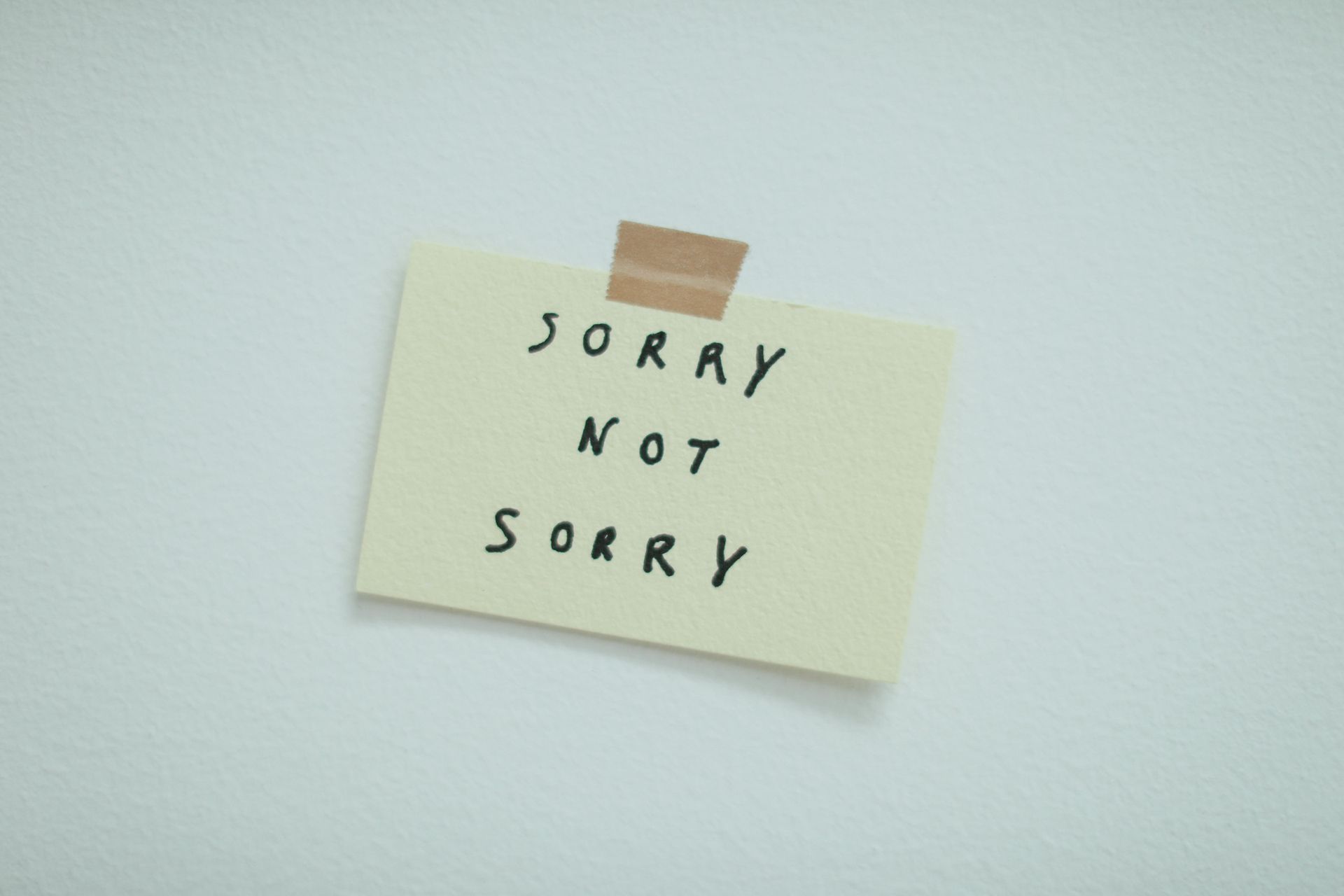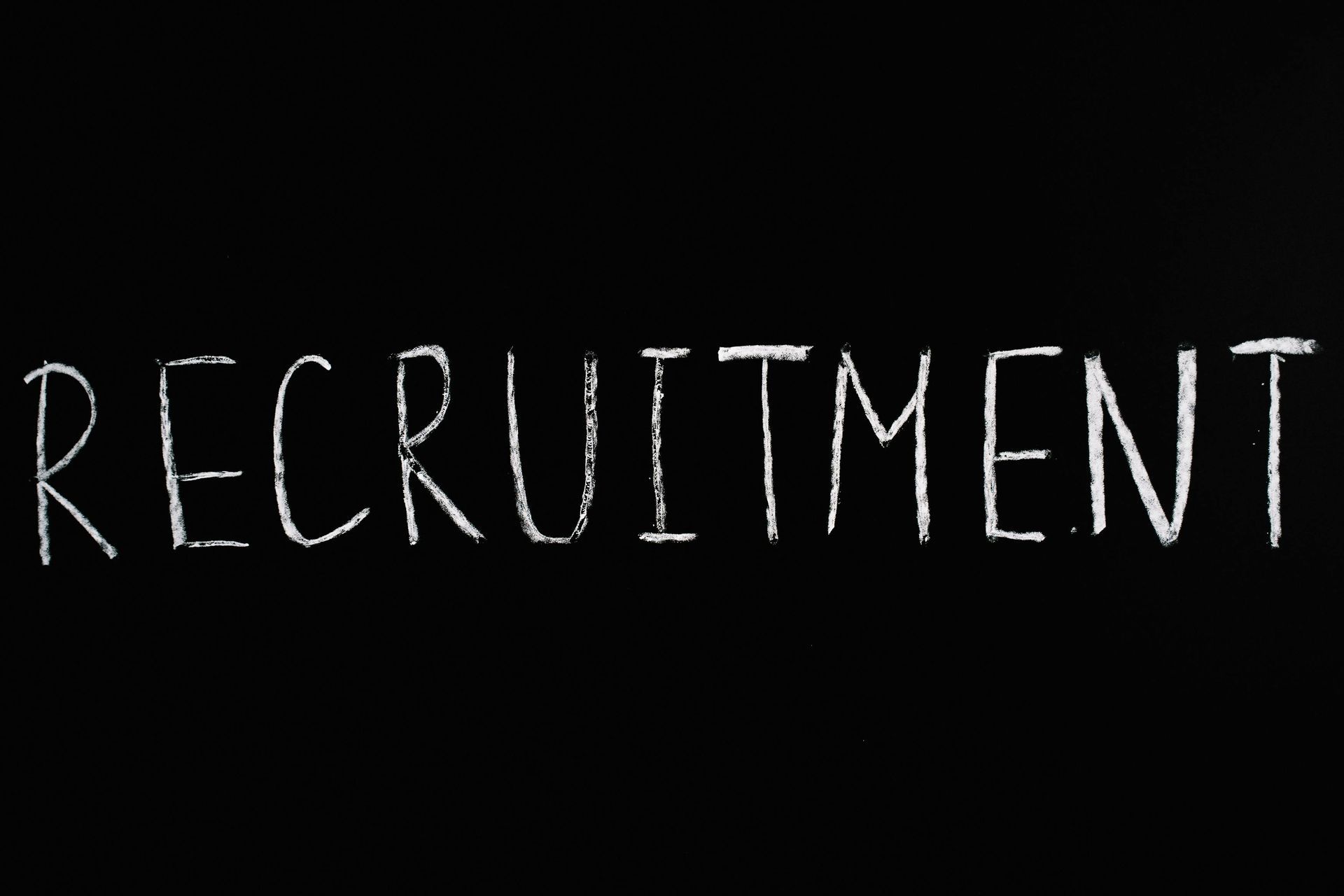Why "Sorry" Isn't Always The Hardest Word
Sorry Not Sorry: Are We Too Apologetic and is it holding us back at work and beyond?

In the UK, saying ‘sorry’ is almost second nature. Blurting out apologies for almost anything from the rain, to simply standing in the way of a fellow being! (think Monty Python or Mr Bean).
Henry Hitchings wrote ‘The readiness of the English to apologise for something they haven’t done is remarkable and is matched by an unwillingness to apologise for what they have done’. While this might make you chuckle, it also highlights an interesting contradiction in how apologies are used flippantly in everyday life and of course, in the workplace.
Discussing this with the team, its apparent that during our HR careers, collectively we have countless examples of apology culture playing out in organisations. It can be a powerful tool for displaying politeness and empathy and also underpins a large number of communication strategies, for instance in the customer service industry. In contrast, over apologising can often be seen as a weakness, undermining confidence and authority. The good news is that by recognising patterns and finding a healthy balance, you can work to build stronger, more confident teams.
‘Apology Culture’
In the UK workplace, apologies are often more about being polite than admitting fault. For example, how many times have you heard (or said) things like ‘Sorry, can I just add’ or ‘Sorry, this might sound silly’ or even just ‘Sorry about that’ when you haven’t done anything!
Most of us use these phrases to soften the tone of what we are trying to say or to help maintain harmony. However, the tendency to over apologise can have a negative effect:
- Undermine confidence – Constantly apologising may make a person appear unsure of themselves or lacking in confidence
- Mixed messages – When ‘sorry’ is used too often, it can lose its impact when a genuine apology is needed
- Limiting assertiveness – Unnecessary apologies can hinder clear, transparent communication
At the same time, there can often be a reluctance to apologise when it really matters, such as addressing mistakes or taking accountability. This can create situations of mistrust and challenges with communication.
So how does this impact our teams?
Managers who frequently apologise can risk diluting their authority. Phrases such as ‘sorry to bother you’ or ‘sorry if I am being unclear’ can give the impression of a lack of confidence and may impact how their team perceives them.
In addition, employees who over apologise, particularly women and marginalised groups may find it harder to assert themselves or advocate their ideas in a group setting.
We cannot overlook the importance of politeness in customer facing roles, but over apologising can also send the wrong message. Repeatedly saying ‘sorry’ for small issues might make a business seem less confident or worse, less capable.
How we can help
We understand that finding the balance between politeness and professionalism is important. Apologies are a vital part of workplace communication, but they should build confidence and strengthen relationships rather than detract from them. We can support you in finding ways to build this into your culture and build your teams communication skills through the following:
Raising awareness through training – we can offer tailored communication workshops that help teams identify when they are apologising unnecessarily. Through practical exercises, we can help to build confidence and replace some of the common phrases with a more unapologetic response.
Supporting confident leadership – our leadership coaching program focuses on building confidence and self assured communication skills. We help leaders and those developing into leadership roles strike the right tone by balancing empathy with authority, giving them the empowerment to guide their teams with confidence and clarity.
Fostering a culture of constructive feedback – a healthy feedback culture can reduce the need for unnecessary apologies by encouraging open and constructive dialogue. We can provide guidance on feedback initiatives such as 360 feedback exercises, including training and coaching to help employees share feedback with confidence, promoting trust and accountability.
An apology culture is part of the British way of life and some might say it defines us as an empathetic and considerate nation. But when it goes unchecked, it can hold people back and limit effectiveness. At Clear Bridge HR, we are here to help strike the perfect balance, where apologies are meaningful, relationships are strong and everyone feels confident communicating so get in touch with us today to discuss your needs in more detail.
Other posts:



